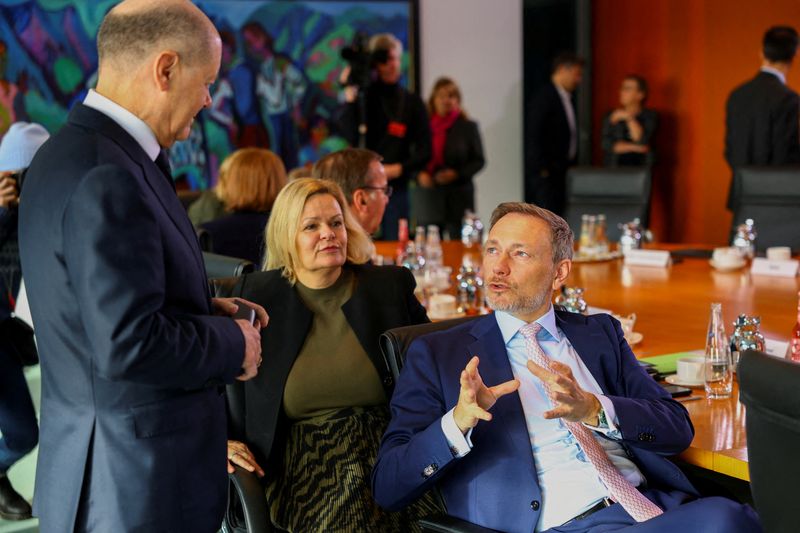BERLIN (Reuters) - Germany's support for a law requiring firms in the European Union to take action if they find their supply chains in violation of human rights has become doubtful after one of its ruling parties sided with business groups opposing the proposal.
German Finance Minister Christian Lindner, head of the pro-business Free Democrats, expressly criticized the law this week, echoing leading business associations' concerns that it creates considerable bureaucracy and legal uncertainties.
"Now is not the time for an additional supply chain directive," Lindner said on Tuesday.
His party's opposition threatens to throw a wrench in what appeared to be a done deal after EU's lawmakers and council of member states reached a political agreement last month. It is also likely to fuel the next dispute in the conflict-plagued coalition of Chancellor Olaf Scholz's Social Democrats, FDP and the Greens.
In a letter to Scholz seen by Reuters this week, the presidents of four business associations - employers' organisation BDA, industry associations BDI and DIHK and the skilled trade lobby ZDH - asked him to veto the planned law, saying the proposals were "neither practicable nor proportionate."
On Thursday, BDI published a survey that showed how a less-strict national supply chain law that came into effect in 2023 made many companies shrink their supplier networks, with some even considering leaving certain countries entirely.
"The one-year balance sheet is sobering. The enormous bureaucratic effort generated by the law is driving many companies, especially small and medium-sized enterprises, to the brink of despair," BDI president Siegfried Russwurm said, commenting on the results.
A government spokesperson said this week that discussions on the proposed EU law within the coalition were still ongoing. "How it is assessed will then determine how Germany votes in the EU bodies," said the spokesperson.

It would not be the first time the FDP's opposition has caused headaches in the bloc.
Last year, it held up an EU vote on a law to end sales of new CO2-emitting cars in 2035 with last-minute objections to what appeared to be a long-agreed move.